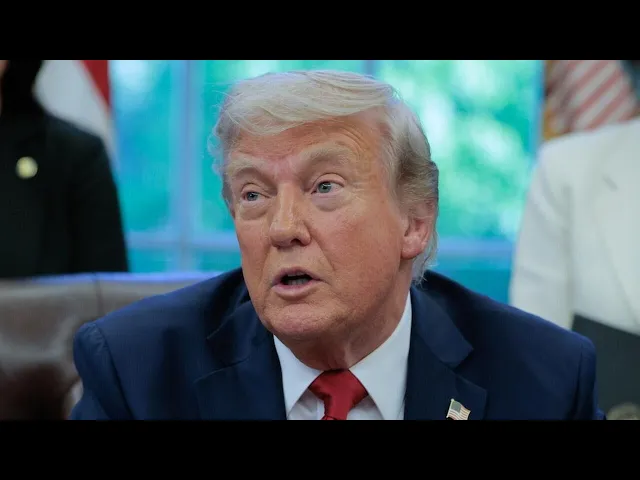How Trump’s AI action plan could disrupt tech

Trump's AI agenda: boon or bust?
In a shocking turn of events that sent ripples through Silicon Valley, President-elect Donald Trump's tech agenda now includes a series of bold, controversial proposals for artificial intelligence regulation. As industry leaders and policy experts scramble to interpret what this means for the future of AI development, one thing becomes abundantly clear: Trump's return to power could fundamentally reshape the technological landscape for years to come. The proposals span everything from AI chip manufacturing to new regulatory approaches, representing a significant departure from the current administration's more measured stance.
Key Points
-
Project 2025's influence appears significant, with many of Trump's AI proposals mirroring the conservative think tank's recommendations, including streamlining existing regulations and challenging what they view as excessive oversight.
-
Major policy shifts include eliminating Biden's AI executive order, creating new governance bodies like an "Office of AI" directly under presidential control, and potentially removing liability protections for content moderation—all of which could dramatically alter how tech companies approach AI development.
-
Economic and national security concerns drive much of Trump's AI strategy, particularly regarding chip manufacturing and preventing Chinese access to advanced AI capabilities—though implementation challenges and potential international repercussions remain significant obstacles.
The Real Game-Changer: Regulatory Restructuring
Perhaps the most consequential aspect of Trump's proposed AI agenda isn't any single policy but rather the wholesale restructuring of regulatory oversight. By potentially dismantling the current administration's AI Executive Order and creating entirely new governance mechanisms reporting directly to the White House, Trump's approach represents a fundamental power shift in how AI technologies are monitored and controlled in America.
This matters tremendously in context because AI governance is still in its infancy. The regulatory frameworks being developed today will shape how this transformative technology evolves for decades. By placing AI oversight firmly under executive control rather than distributing it across existing agencies with technical expertise, Trump's plan could create a more politicized approach to AI regulation that changes with each administration. For companies making decade-long investment decisions around AI capabilities, this regulatory uncertainty could prove more disruptive than any specific policy.
Beyond the Video: International Ripple Effects
What the analysis doesn't fully explore is how Trump's AI agenda might trigger significant international responses. The European Union has already established the comprehensive AI Act, setting global
Recent Videos
How To Earn MONEY With Images (No Bullsh*t)
Smart earnings from your image collection In today's digital economy, passive income streams have become increasingly accessible to creators with various skill sets. A recent YouTube video cuts through the hype to explore legitimate ways photographers, designers, and even casual smartphone users can monetize their image collections. The strategies outlined don't rely on unrealistic promises or complicated schemes—instead, they focus on established marketplaces with proven revenue potential for image creators. Key Points Stock photography platforms like Shutterstock, Adobe Stock, and Getty Images remain viable income sources when you understand their specific requirements and optimize your submissions accordingly. Specialized marketplaces focusing...
Oct 3, 2025New SHAPE SHIFTING AI Robot Is Freaking People Out
Liquid robots will change everything In the quiet labs of Carnegie Mellon University, scientists have created something that feels plucked from science fiction—a magnetic slime robot that can transform between liquid and solid states, slipping through tight spaces before reassembling on the other side. This technology, showcased in a recent YouTube video, represents a significant leap beyond traditional robotics into a realm where machines mimic not just animal movements, but their fundamental physical properties. While the internet might be buzzing with dystopian concerns about "shape-shifting terminators," the reality offers far more promising applications that could revolutionize medicine, rescue operations, and...
Oct 3, 2025How To Do Homeless AI Tiktok Trend (Tiktok Homeless AI Tutorial)
AI homeless trend raises ethical concerns In an era where social media trends evolve faster than we can comprehend them, TikTok's "homeless AI" trend has sparked both creative engagement and serious ethical questions. The trend, which involves using AI to transform ordinary photos into images depicting homelessness, has rapidly gained traction across the platform, with creators eagerly jumping on board to showcase their digital transformations. While the technical process is relatively straightforward, the implications of digitally "becoming homeless" for entertainment deserve careful consideration. The video tutorial provides a step-by-step guide on creating these AI-generated images, explaining how users can transform...
